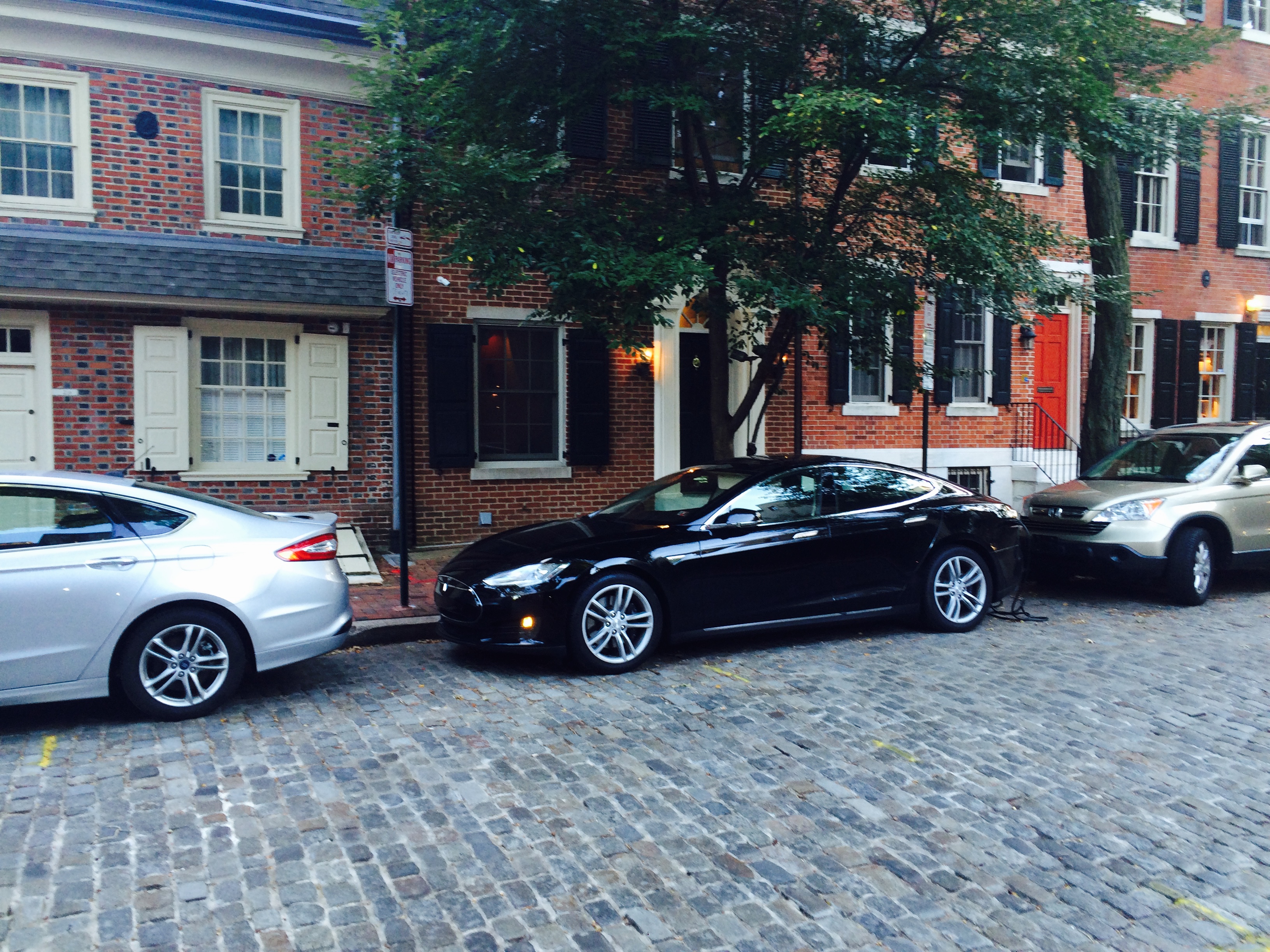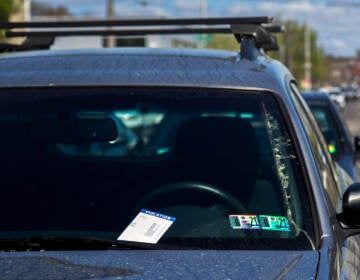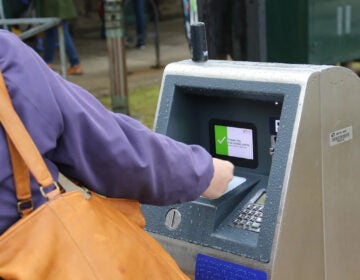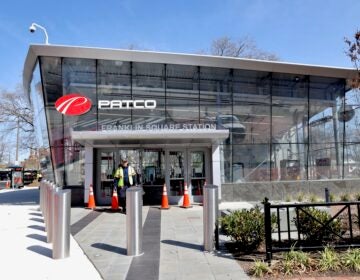Time’s up for electric vehicle parking, panel says

A city task force wants to end an unpopular electric-vehicle (EV) parking program and in its stead, create more publicly available car-charging stations. Tonight, members of the public are invited to weigh in on that and other proposed changes to the city’s EV policies.
The Electric Vehicle Policy Task Force issued a draft report outlining recommended EV policy changes last week after a year of discussion. The draft report calls for scrapping the 10-year-old parking program, which allows EV owners to essentially to pay an annual fee in exchange for the right to install a private curbside charger on city streets and limit parking there to electric vehicles. The program attracted only 67 active participants before City Council imposed a moratorium on last year in response to complaints from other neighbors over the perceived unfairness of reserving some on-street spots for plug-in electric and hybrid cars.
According to the report, Philadelphia lags behind peer cities in adopting electric vehicles.
“There are currently 360 EVs registered in Philadelphia and around 100 publicly accessible charging stations, compared to other cities such as Seattle (401 chargers), Los Angeles (1,456 chargers), and San Francisco (605 chargers).”
For most residents who own the electric cars, the curbside parking program was the only way to reliably ensure charging access.
“To fill this gap, the City must proactively implement solutions that address the charging needs of residents who lack access to dedicated residential chargers,” the task force’s report states.
Without delving into specific, the task force recommends that the city “should establish programs and policies that address the charging needs of existing EV users in the city.” Public officials “should consider the financial feasibility of, and explore opportunities for a concession agreement to allow an EV charging solution,” and “should collaborate with private industry partners and explore opportunities.”
Patrick Clark is a transportation planner at the city’s Office of Transportation and Infrastructure Systems (OTIS). She says the generalized nature of the report was intentional.
“The draft report is establishing a framework for discussion and to help inform future discussions for City Council,” says Clark.
Coming up with a concrete set of policy recommendations to provide enough EV charging in Philly is easier said than done. The technology is rapidly changing, and the nascent industry hasn’t standardized recharging yet, meaning some plugs won’t work for some cars. The city itself lacks the funds to invest in EV charging itself — such expenditures would be seen as subsidies for a small group of EV owners, who tend to be wealthier than the average car owner (who is wealthier than the average American).
According to Chris Puchalsky, director of policy and special initiatives at OTIS, the task force looked at examples in Portland, Or. and Amsterdam, for a solution to the EV charging problem in dense rowhome neighborhoods. Given how new technologies have reduced recharging times significantly, Puchalsky said the city would try to encourage “charging opportunities in dense, parking constrained neighborhoods,” rather than the current system of setting aside parking spots with charging stations for EV owners. In other words, the city will look towards seeing an EV charging infrastructure emerge that would emulate the gas refueling infrastructure that exists today — encouraging companies to provide rapid charging stations across town the way gas companies have stations.After all, If Detroit ( and its customer base) adopts plug-in technology broadly, the market will eventually catch up to provide charging options for owners without their own driveways.
The Electric Vehicle Policy Task Force will hold an open house on Thursday, January 25th from 6 to 8 p.m. at 16th Floor Innovation Lab of the Municipal Services Building, 1401 JFK Blvd, Philadelphia, PA. Comments can also be submitted online until February 16th using this survey.
WHYY is your source for fact-based, in-depth journalism and information. As a nonprofit organization, we rely on financial support from readers like you. Please give today.






